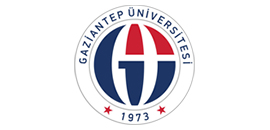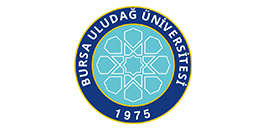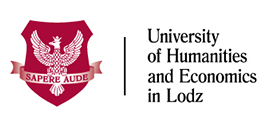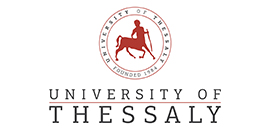
Gaziantep Üniversitesi
Bölgemizin ticaret ve sanayi merkezi olan, Gaziantep ilinin adını taşıyan Üniversitemiz, eğitim-öğretime 1973 yılında ODTÜ Mühendislik Fakültesine bağlı olarak kurulan Makine Mühendisliği Bölümü ile başlamıştır. 1974 yılında Elektrik Mühendisliği Bölümünün açılması ile bu iki bölüm, Gaziantep Mühendislik Fakültesine dönüştürülmüştür. 1974 yılında Temel Bilimler Bölümü ile Lisan Bölümü kurulmuş, Fakülteye 1977 yılında Uygulamalı Kimya Bölümü eklenmiştir.1981 yılında İnşaat Mühendisliği kurulmuş, 1982 yılında Uygulamalı Kimya Bölümü Gıda Mühendisliği Bölümüne, Temel Bilimler Bölümü Fizik Mühendisliği Bölümüne dönüştürülmüştür. 7 Haziran 1987 yılında 3389 sayılı yasa ile Mühendislik Fakültesine yeni kurulan çeşitli fakülte ve yüksekokulların da ilavesi ile Üniversitemiz tüzel kişiliğine kavuşmuştur. Kuruluşundan bu yana gelişimini hızla sürdüren Gaziantep Üniversitesi, çevre il ve ilçelere yayılarak üniversitemizden ayrılan fakülte ve yüksekokullarıyla yeni üniversitelerin kurulmasını sağlamıştır. Öğrencilerimize kampus içerisinde yer alan, güreş ve kondisyon salonları, masa tenisi, halı ve çim futbol, atletizm sahaları, açık yarı olimpik yüzme havuzu, 6 adet açık basketbol, 8 adet açık voleybol sahası, 3 adet tenis kortu ve 2 adet 500’er seyirci kapasiteli, 3 adet ise tribünsüz antreman spor salonlarıyla, sportif faaliyetlerde bulunma imkanı verilmekte olup üniversitemizde barınma, beslenme ve sağlık sorunu yaşanmamaktadır.
Sosyal ve kültürel faaliyetlerimiz 34 öğrenci kulübü tarafından düzenlenen çeşitli etkinliklerle gerçekleştirilmektedir. Üniversitemizde gelişmiş kütüphane imkanı, en son teknoloji ile donatılmış laboratuvarlar ve yaygın bilgisayar ağ donanımıyla modern ve çağdaş ortamlarda eğitim-öğretim hizmeti verilmektedir.
Öğrencilerimize kampus içerisinde yer alan, güreş ve kondisyon salonları, masa tenisi, halı ve çim futbol, atletizm sahaları, açık yarı olimpik yüzme havuzu, 6 adet açık basketbol, 8 adet açık voleybol sahası, 3 adet tenis kortu ve 2 adet 500’er seyirci kapasiteli, 3 adet ise tribünsüz antreman spor salonlarıyla, sportif faaliyetlerde bulunma imkanı verilmekte olup üniversitemizde barınma, beslenme ve sağlık sorunu yaşanmamaktadır. Üniversitemizde 20 Fakülte, 5 Enstitü, 2 Yüksekokul, 11 Meslek Yüksekokulu bulunmakta olup eğitim dili Türkçe, İngilizce ve Arapça’dır.
Üniversitemiz, öğrencilerine ve tüm akademik personele sunduğu gelişmiş kütüphane imkanları, modern araştırma laboratuarları ve bilgi-işlem alt yapısı ile her türlü araştırma ve geliştirme faaliyetlerini en üst düzeyde desteklemektedir. Sosyal ve kültürel faaliyetler, artan bir hızla devam etmektedir. Öğrenci toplulukları çeşitli etkinliklerle sosyal ve kültürel faaliyetlere önemli ölçüde katkıda bulunmakta olup, ülkemizi ilgilendiren ekonomik, siyasi ve uluslararası konularda tanınmış simaların katıldığı birçok bilimsel toplantı düzenlenmektedir.

Bursa Uludağ Üniversitesi
Bursa Uludag University is a public state university. The aim of Uludağ University is to bring up contemporary students who identify themselves with the cultural and historical values of the country by being respectable to the national values, have a high personal responsibility, and free thought on the contemporary, secular, and democratic way led by reason and science. Bursa Uludağ University, established in 1975 under the name of Bursa University and took its current name in 1982, has been successfully continuing its educational services ever since with its 13 faculties, 2 schools, 15 vocational schools, 1 conservatory, 4 institutes, 21 applied research centers and 5 departments under rectorate. Uludag University Faculty of Law placed in Gemlik Campus and its mission to give our students opportunity to have qualified education and based on the values of justice. Bursa Uludag University Faculty of Law lessons are, Constitutional Law, Criminal Law, Phylosophy of Law, History of Law, Administrative Law, Tax Law, Civil Law, Law of Civil procedure, Labor Law, Bankruptcy and Enforcement Law, International Law, Roman Law, European Union Law, Trade Law and 24 faculty members and 23 research assistants work in Faculty of Law. All of the faculty members studies in their professional area aim to increase success. In this Project context, Faculty of Law members have high quality law drafting experience and teaching and practises.

Humanities Economics In Lodz Üniversitesi
University of Humanities and Economics in Lodz is an accredited higher education institution and provides bachelor, master, postgraduate, PhD studies and courses for various target groups. Our staff includes approx. 600 permanent employees: researchers, teachers, trainers, supporting staff (financial, administrative, technical staff), specialists in various areas. The university focuses on educational research, innovative teaching methodologies and e-learning. Among AHE’s key fields of study and research there are: educational science, psychology, entrepreneurship, innovative teaching and learning methods, social exclusion, application of ICT in the teaching process, systems of quality assurance and validation of prior learning. AHE works with a lot of different target groups: e.g. youth, students, disabled, seniors, teachers, trainers, people of various professions, migrants, children, disadvantaged youth, unemployed. AHE have well developed job center. AHE established the Polish Virtual University (www.puw.pl) – an on-line university providing distance learning courses and studies. The university is an expert in research and analysis; designing of curricula; implementation of courses, e-learning and development of e-learning platforms, tools, materials; dissemination; courses of creativity, self development, workshops, seminars; EU projects management. AHE’s project experience include approximately 200 transnational educational projects completed either as coordinator or partner during the last 10 years(Lifelong Learning Programme, Culture, Daphne and other programmes). Ahe has been also involved in European Social Fund projects and research programmes at national and European level. AHE is part of a European network for dissemination (C-ENTER, www.c.enter-network.eu), which enables us to promote projects on an international level. One of the staff members holds an official title of “C-ENTER promoter” and is responsible for promoting projects’ results on the European level through the network. AHE’s main strengths include also: easy access to various target groups; network of contacts on regional and national level.

Thessaly Üniversitesi
University of Thessaly, with 37 Departments, and 8 Faculties is a University with its own identity and with a prominent position in our national educational system. University of Thessaly provides undergraduate and postgraduate programs and extra-curricular modules in specific research and business fields, for over 43000 students. The main mission of the University of Thessaly is the promotion of scientific knowledge through research and the contribution to the cultural and economic development of the local community and wider society. It is known for its excellent research performance and outstanding scientific achievements, in accordance with the international standards.
The Department of Special Education (SED) was founded in 1993 and started its operation in September 1998. It is part of the School of Humanities of the University of Thessaly and is located at the city of Volos, Greece. SED is the only public university department in Greece fully specialized in Special Education. SED’s main mission is to educate special teachers for pre-school and primary education, as well as advance research and development in special education. SED’s program of studies offers specialization in the education and training.
As one of the University of Thessaly central institutions, the Center of International Education (CIE) http://cie.uth.gr/ supports all major processes at the University and provides basic and individually tailored services in order to systematize and unify the decentral training in the various fields. The main mission of CIE is to provide a sustainable environment for potential international partnerships and to provide increased opportunities for research staff, faculty, students and other target groups to be actively involved in various international initiatives. Furthermore, CIE aims at establishing and organizing intensive short training courses.

